DeLaval, the Swedish-based milking equipment manufacturer, has launched a new type of milking facility. The Irish Farmers Journal travelled to Denmark to see it.
For Danish dairy farmer Klaus Jakobsen, batch robotic milking has offered a good compromise between the predictability of conventional milking and the lower labour input of robotic milking.
He has just installed a new DeLaval VMS batch milking system for his herd of 830 Jersey cows. The project was completed in May and over the next few years, Klaus plans to expand to 1,400 cows.
A total of 24 DeLaval VMS robots were installed into a slatted collecting yard, with 12 on either side. Cows are kept in groups of 180 in nearby cubicle sheds and brought to the milking area for milking twice a day.
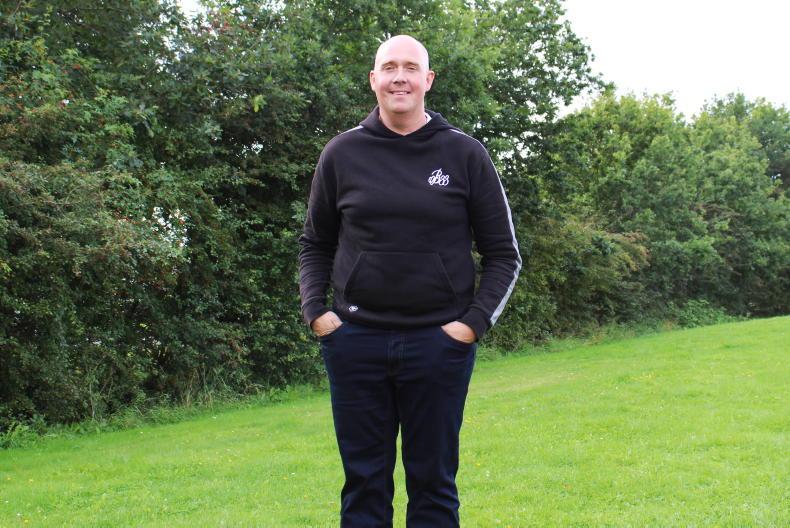
Danish dairy farmer Klaus Jakobson has installed the first DeLaval batch robotic milking system in northern Europe
The cows then select what robot they want to go into for milking. A small amount of meal entices them into the robot.
After milking, they walk out of the robot and into an alleyway that brings them back to the shed through a separation or drafting gate. Any cow that needs attention is drafted into a holding pen.
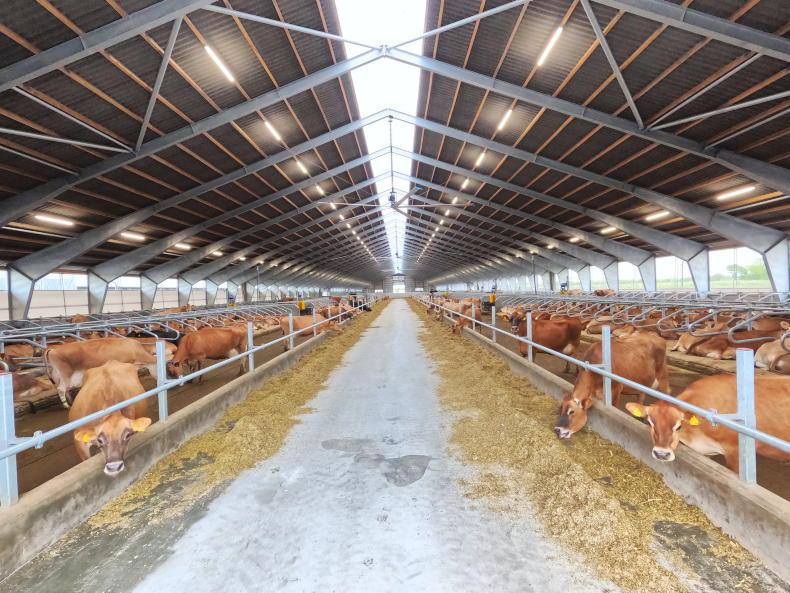
A new cow barn has also been built and Klaus plans to increase cow numbers to 1,400 Jerseys
It has been taking about one hour to milk the 180 cows, but Klaus says this is speeding up the whole time and expects the system to be milking 200 cows per hour in another few months.
The robots were turned on at the end of May, so the system has only been going for three months. The cows on the Jakobsen farm are purebred Jersey, so milking times are lowere compared with higher-yielding Holstein Friesian.
While the cows are being milked, the operator is cleaning any dung off the sand-bedded cubicles, scraping cross-overs and doing any other jobs that need to be done.
The first cows are back in the shed 10 minutes after entering the milking area. Another employee feeds out fresh TMR while the cows are being milked, which Klaus says has been a help at cow flow.
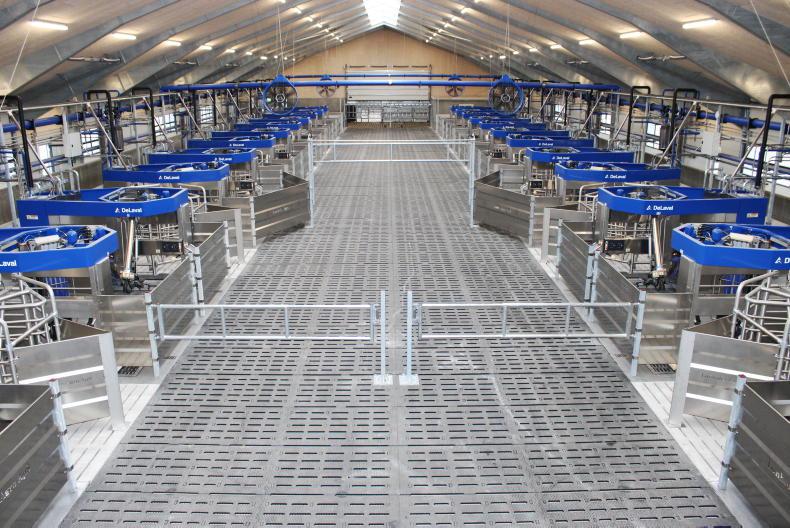
The new DeLaval batch robotic milking setup on Klaus Jakobson's farm in Denmark
Milking time is currently taking over four hours per session, but Klaus expects this to settle at around six and a half hours per milking when the farm is finished expanding.
“We currently have eight people working on the farm, which seems high, but the old milking facility was only shut down recently and this is being taken down and extra cow housing installed, so we are doing a lot of this work ourselves.
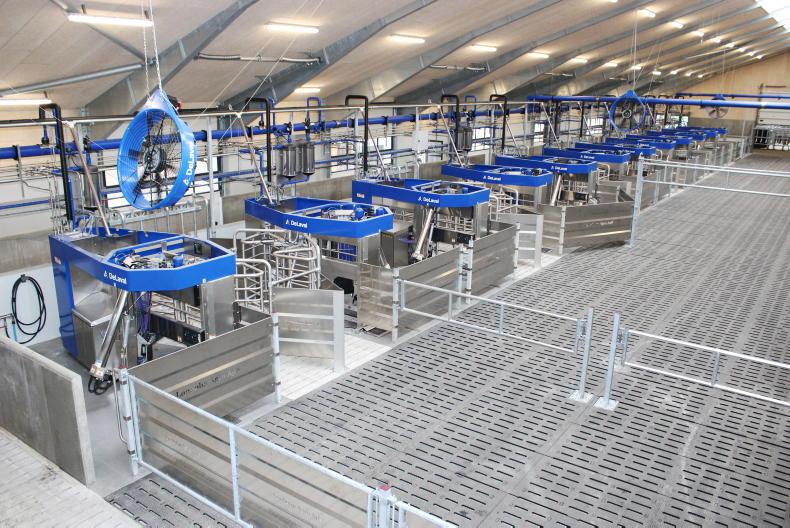
There are 12 DeLaval robots on either side of the milking area.
“When the farm is finished expanding, I believe we will still have eight employees with a max of two people involved in milking and that will really only involve moving cows to the milking area and cleaning cubicles, so it won’t be as mundane as just putting on clusters for six or seven hours a shift,” Klaus told the Irish Farmers Journal.
DeLaval, the Swedish-based milking equipment manufacturer, has launched a new type of milking facility. The Irish Farmers Journal travelled to Denmark to see it.
For Danish dairy farmer Klaus Jakobsen, batch robotic milking has offered a good compromise between the predictability of conventional milking and the lower labour input of robotic milking.
He has just installed a new DeLaval VMS batch milking system for his herd of 830 Jersey cows. The project was completed in May and over the next few years, Klaus plans to expand to 1,400 cows.
A total of 24 DeLaval VMS robots were installed into a slatted collecting yard, with 12 on either side. Cows are kept in groups of 180 in nearby cubicle sheds and brought to the milking area for milking twice a day.

Danish dairy farmer Klaus Jakobson has installed the first DeLaval batch robotic milking system in northern Europe
The cows then select what robot they want to go into for milking. A small amount of meal entices them into the robot.
After milking, they walk out of the robot and into an alleyway that brings them back to the shed through a separation or drafting gate. Any cow that needs attention is drafted into a holding pen.

A new cow barn has also been built and Klaus plans to increase cow numbers to 1,400 Jerseys
It has been taking about one hour to milk the 180 cows, but Klaus says this is speeding up the whole time and expects the system to be milking 200 cows per hour in another few months.
The robots were turned on at the end of May, so the system has only been going for three months. The cows on the Jakobsen farm are purebred Jersey, so milking times are lowere compared with higher-yielding Holstein Friesian.
While the cows are being milked, the operator is cleaning any dung off the sand-bedded cubicles, scraping cross-overs and doing any other jobs that need to be done.
The first cows are back in the shed 10 minutes after entering the milking area. Another employee feeds out fresh TMR while the cows are being milked, which Klaus says has been a help at cow flow.

The new DeLaval batch robotic milking setup on Klaus Jakobson's farm in Denmark
Milking time is currently taking over four hours per session, but Klaus expects this to settle at around six and a half hours per milking when the farm is finished expanding.
“We currently have eight people working on the farm, which seems high, but the old milking facility was only shut down recently and this is being taken down and extra cow housing installed, so we are doing a lot of this work ourselves.

There are 12 DeLaval robots on either side of the milking area.
“When the farm is finished expanding, I believe we will still have eight employees with a max of two people involved in milking and that will really only involve moving cows to the milking area and cleaning cubicles, so it won’t be as mundane as just putting on clusters for six or seven hours a shift,” Klaus told the Irish Farmers Journal.









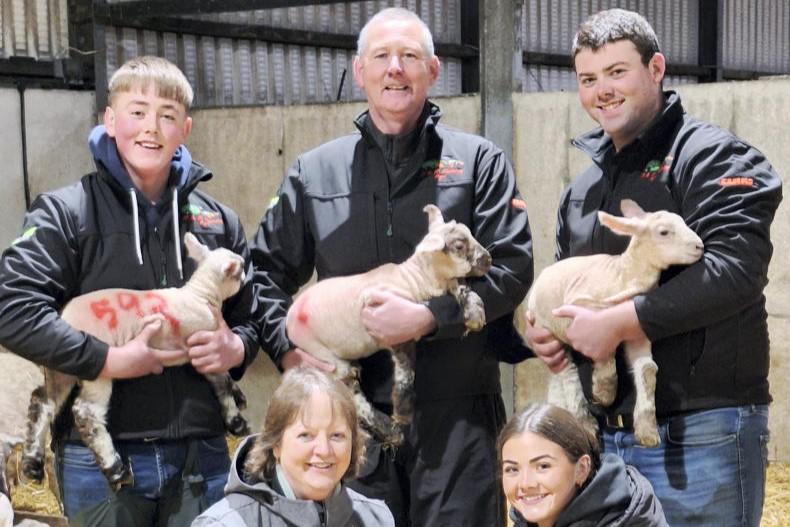

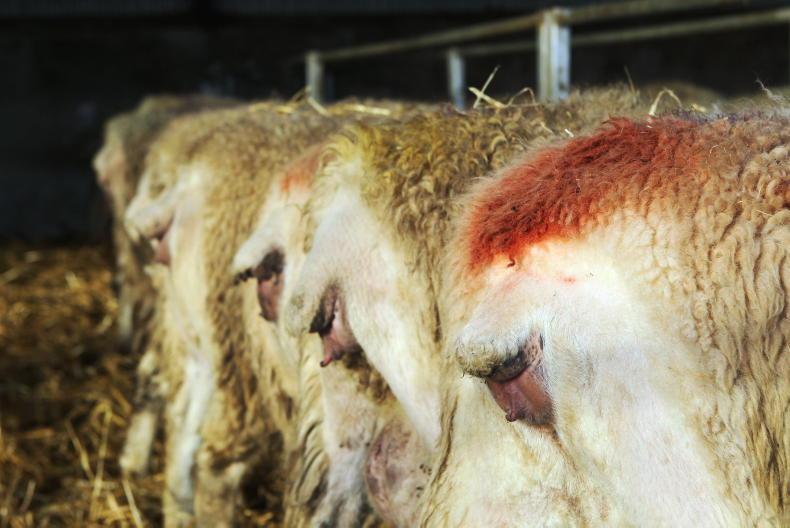

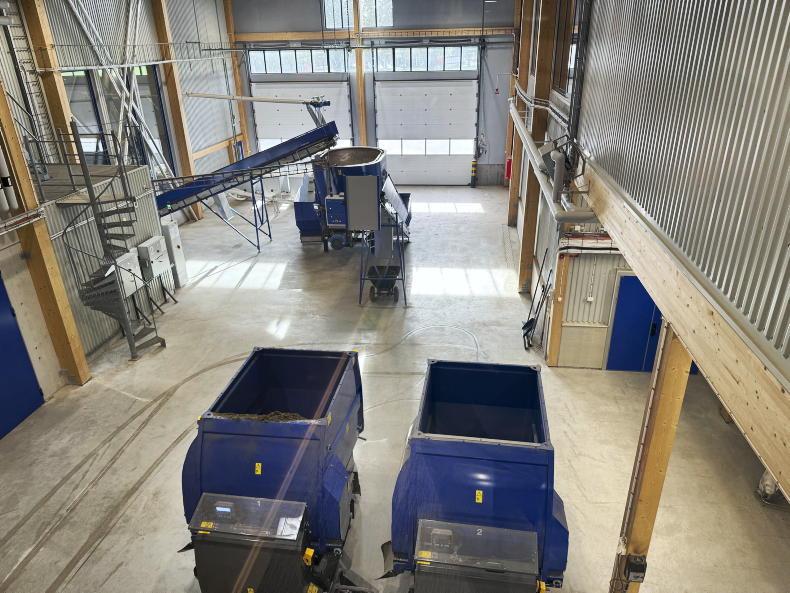
SHARING OPTIONS